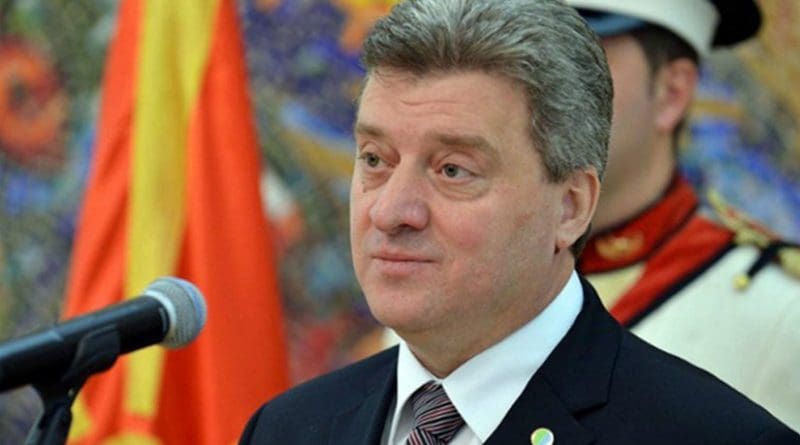Macedonia: President Ivanov Revokes All Controversial Pardons
By Sinisa Jakov Marusic
Macedonian President Gjorge Ivanov on Monday withdrew all 56 of the controversial pardons of top politicians and their associates which sparked mass protests and deepened the country’s political crisis.
Ivanov’s move to revoke all the pardons on Monday came after the EU and US said that his decision ten days ago to withdraw pardons for 22 of the 56 suspects, mainly top politicians, was not enough to revive efforts to resolve the country’s political crisis and reverse the damage caused by issuing the pardons in the first place.
“During these past ten days [since the partial retraction of the pardons], we have witnessed different interpretations of this decision on the polarised political scene,” Ivanov said in a brief press statement, referring to opposition accusations that he was protecting ruling VMRO DPMNE politicians from criminal prosecutions.
He also insisted that despite the pressure for the retraction of the pardons, and his subsequent compliance, he was still sure that they would have contributed “to national reconciliation and offered a way out of the political crisis”.
The full scrapping of the pardons came a day before the scheduled visit of Germany’s special envoy for Macedonia, Johannes Haindl, who is expected to revive the crisis talks between the country’s warring political parties after several weeks of effective stalemate.
On April 12, Ivanov pardoned 56 top politicians and their associates, effectively blocking the work of the Special Prosecution which had been set up to probe high-level corruption as part of the EU-brokered accord reached last summer which was intended to defuse the long-running political crisis.
He insisted he had acted in order to help overcome the deep political divisions in Macedonia.
However, the move outraged the opposition and worsened the political crisis in the country, sparking mass anti-government protests in the capital and in other towns.
Rallies have also taken place in support of the government led by the ruling VMRO DPMNE party of former Prime Minister Nikola Gruevski.
Ivanov’s pardons were condemned by the EU and US who demanded he revoke what they said was a harmful move that had undermined the EU-brokered deal on resolving the crisis.
The crisis in Macedonia revolves around opposition claims that the government, formerly led by Gruevski, was responsible for the illegal wiretapping of over 20,000 people, amongst other crimes.
Gruevski, who took power in 2006 and resigned as prime minister earlier this year under the terms of an EU-brokered accord reached last summer, claims that unnamed foreign intelligence services “fabricated” the wiretapping tapes and gave them to the opposition to destabilise the country.
The list of pardoned people was dominated by members of the VMRO DPMNE and by others seen as close to the ruling elite.
Former Prime Minister Gruevski was pardoned in five criminal proceedings. His former Transport Minister, Mile Janakieski, and his former Interior Minister, Gordana Jankulovska, topped the list in terms of reprieves, with 16 and 11 pardons respectively.
Ivanov also pardoned the opposition Social Democrats leader, Zoran Zaev, in two criminal cases which the regular prosecutor’s office brought against him last year.

